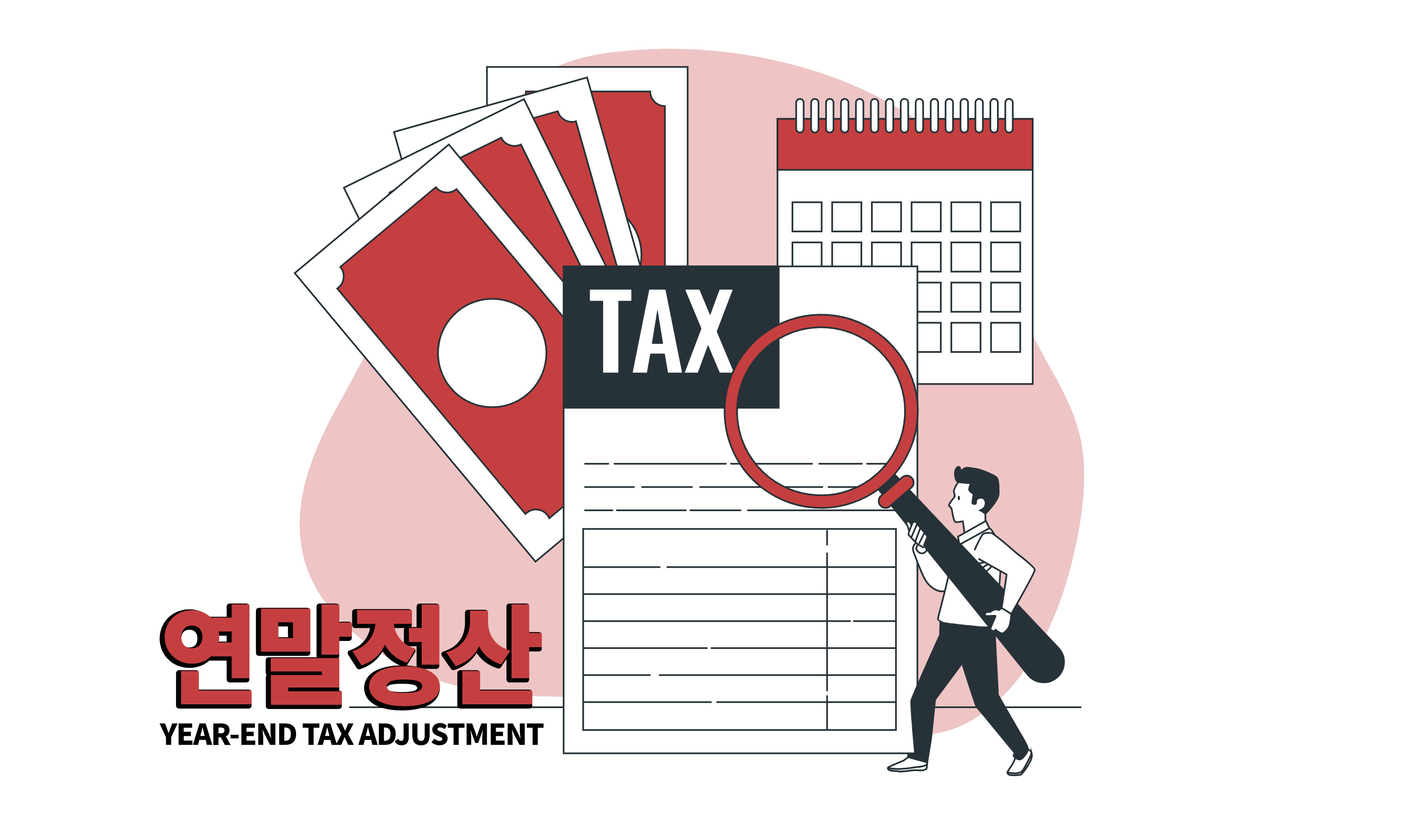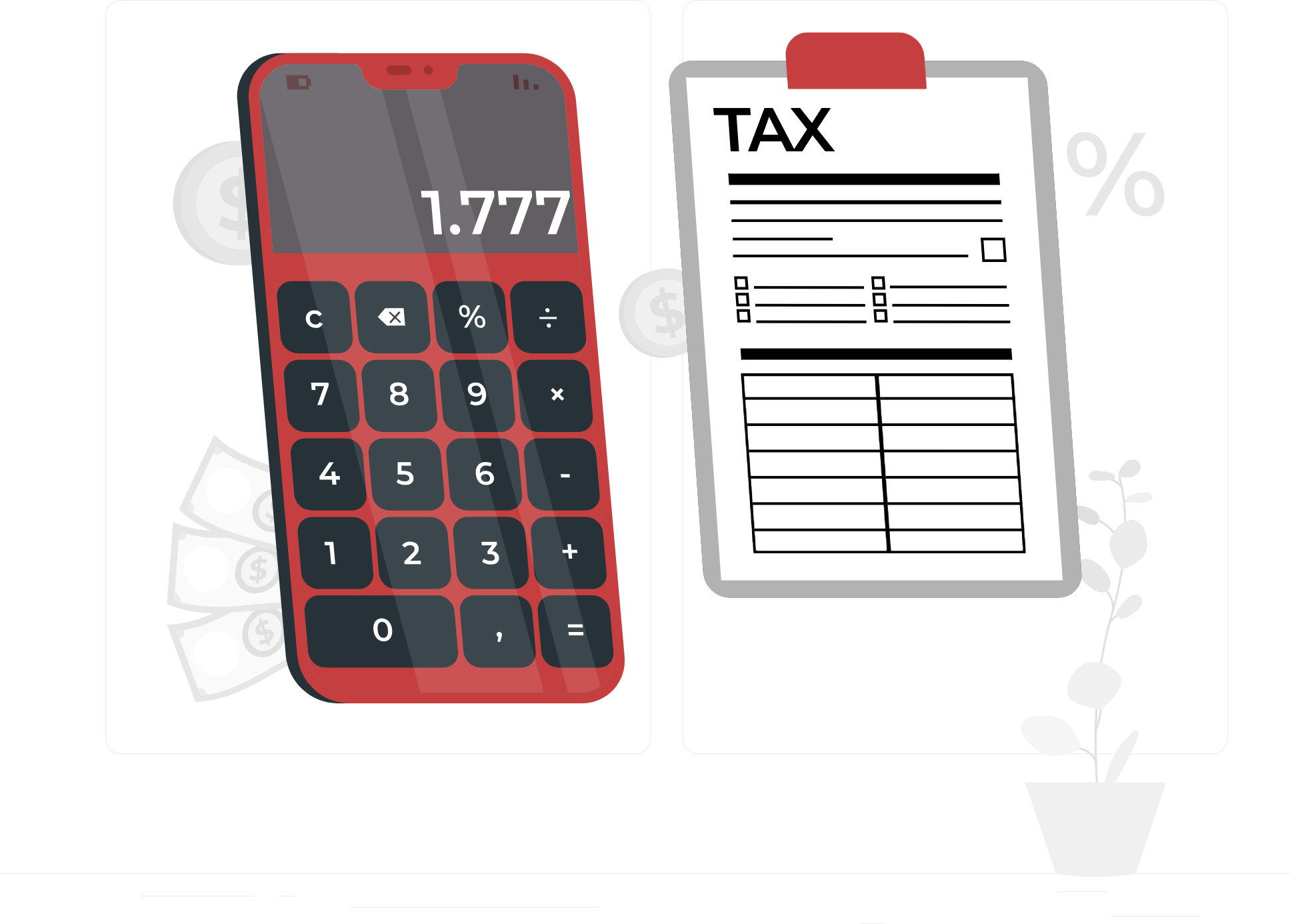Year-end Tax Adjustments 연말정산 Overview for Foreigners

1. Year-end Tax Adjustment Obligations
- Regardless of nationality, country of current residence, or period of stay, foreign workers must file year-end tax adjustment if they have earned income in Korea in 2023.
- The year-end tax adjustment process is the same even for foreigners as for domestic workers. In other words, most of the general items and schedules are the same as for domestic workers.

What is 연말정산 or the Year-end Tax Adjustment?
This is a process that takes place at the end/beginning of the year and compares the taxes you have already paid with the taxes you should pay as determined by the National Tax Service (NTS).
For example: After comparison, if a person paid or spent less than what NTS requires, that person has to pay additional taxes, and if that person paid or spent more than what was required, that person will receive a tax refund.
2. Year-end tax adjustment process

- STEP 1: The company confirms the list of people subject to year-end tax adjustment and notifies foreign workers
- STEP 2: Notified foreign workers separately prepare income deduction and tax credit data, if any, to be submitted at year-end tax settlement.
- STEP 3: Starting in mid-January, when the National Tax Service releases simplified year-end tax settlement data, the actual process for workers begins. This involves gathering income and tax data using the simplified service, downloading PDF data, and submitting it to the company along with the deduction report.
- STEP 4: The process concludes by submitting the collected data and report to the National Tax Service, ensuring all necessary information is accurately conveyed.
3. Deduction scope and special taxation provisions for foreign workers

▶ Differences in deduction range depending on residency status
- If the Foreigner is a resident
If you are a resident who has stayed for more than 183 days, general deduction items such as income deductions and tax credits are applied in the same way as domestic residents.
Additionally, resident foreign workers can also receive housing-related income and tax credits. - If the Foreigner is a non-resident
If you are a non-resident (staying less than 183 days) , only some deductions are allowed, such as the basic deduction for yourself and pension insurance premium deduction. Most income/tax deductions are not allowed, including special tax deductions such as medical/education expenses.
▶Special Taxation for foreigners
ⓐ Foreigners in Korea may opt for a single tax rate of 19% annual salary for a maximum duration of 5 years
ⓑ Some tax exemption provisions, such as native speaking teachers and professors, are exempt from national income tax for a certain period of time.
ⓒ Foreign engineers who meet the requirements will receive a 50-70% income tax reduction for 5 years.
4. If a foreign worker residing in Korea earns earned income abroad

If a foreign worker residing in Korea earns earned income abroad, he or she must report the earned income earned abroad at the time of year-end tax settlement.
- If you are a resident, you MUST report all earned income earned both domestically and overseas.
-
If you have taxes paid abroad, you can receive a foreign tax credit at year-end tax settlement
5. Documents to be submitted by foreign workers
All you have to do is submit a copy of your Resident card (ARC) or proof of address.
6. How to contact the NTS
The National Tax Service provides various services to help foreign workers report their year-end tax adustments.
https://www.nts.go.kr/english/main.do
Foreigners may also call ☎ 1588-0560

Please log in.